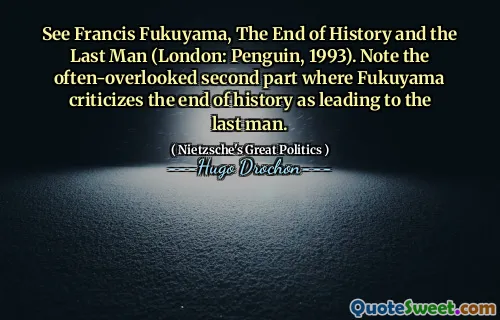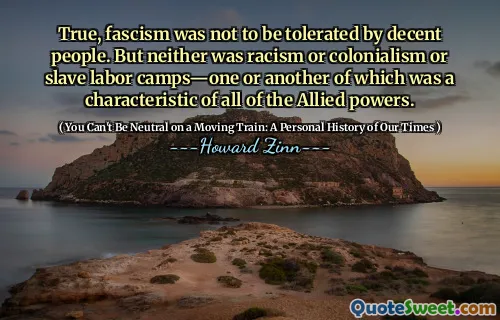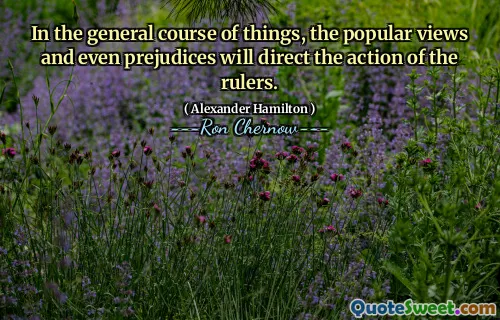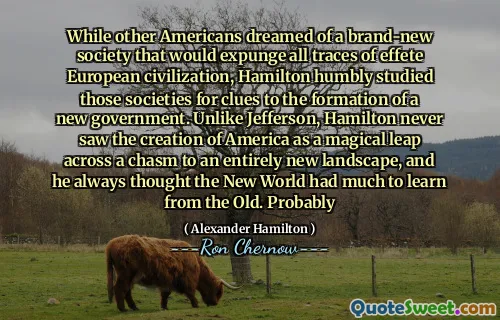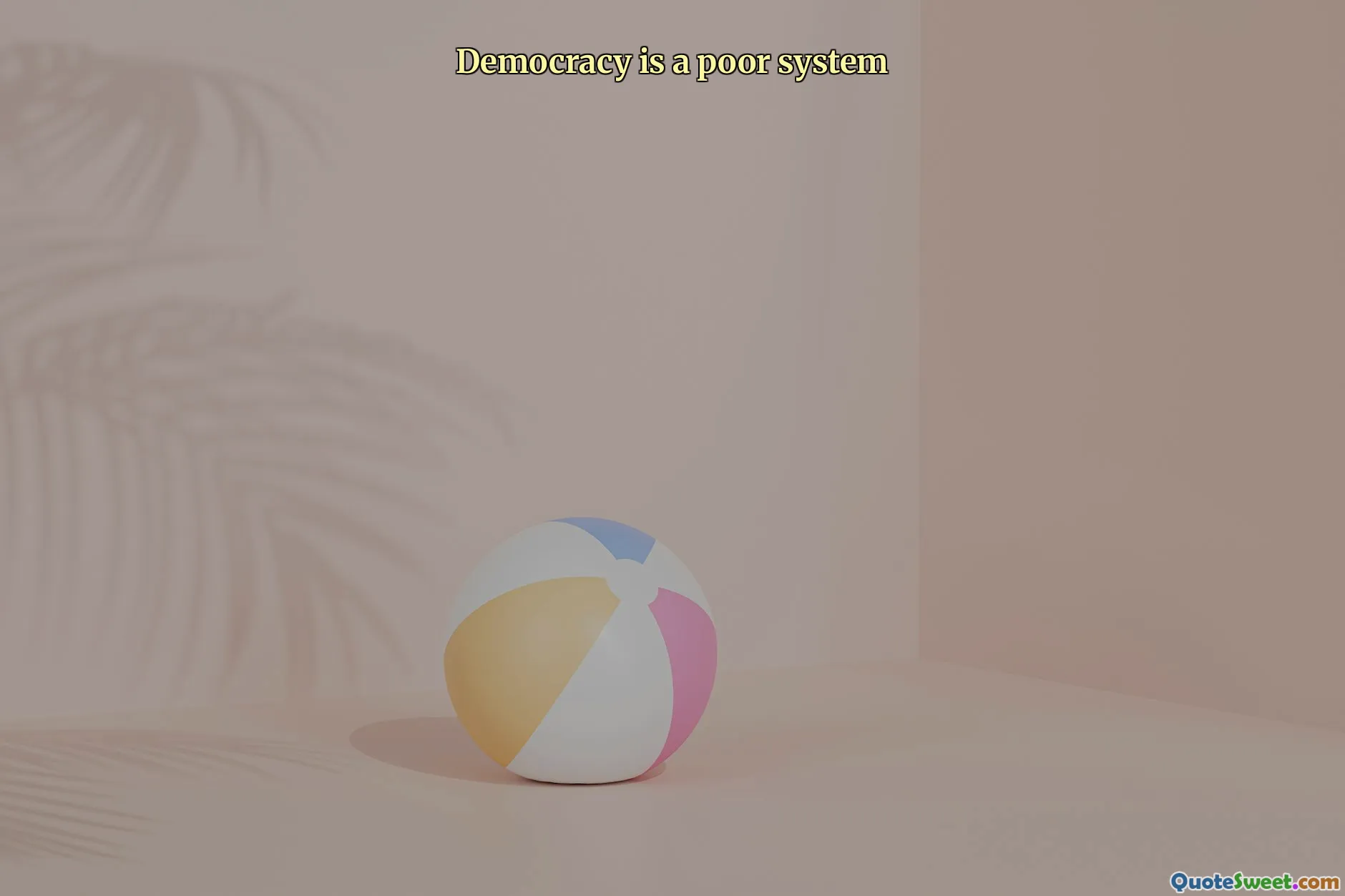
Democracy is a poor system
This quote captures a sentiment that can often provoke deep discussions about the fine balance between ideals and realities in political systems. While democracy is widely celebrated as a system that embodies fairness, representation, and freedom, it is not without flaws. Calling democracy a "poor system" reflects a critical perspective that highlights its imperfections—whether they relate to inefficiencies, susceptibility to populism, or challenges in truly representing diverse populations.
In practice, democracy involves constant negotiation and compromise, which can sometimes lead to slow decision-making processes or outcomes that do not satisfy all parties involved. Despite its shortcomings, democracy remains one of the most flexible systems, capable of adapting and evolving with societal changes due to its emphasis on inclusion and accountability. The criticism implied in the quote invites us to reflect on how we might improve democratic practices to address issues like voter disengagement, misinformation, or unequal influence from special interest groups.
Rather than dismissing democracy outright as a poor system, this statement encourages a deeper investigation into its weaknesses. It urges citizens, policymakers, and scholars to engage critically and constructively with their political environments, striving to uphold democratic principles while working to fix its deficiencies. Ultimately, this critical view underscores that democracy is not a perfect solution but a continual work in progress that depends heavily on active participation and vigilance from its people.






